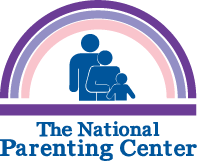How can a parent tell the difference between normal rebellion and the signal that a teen is troubled? Ask yourself these two questions: • First, how frequent and intense is the rebellion? Normal rebellion is sporadic. There are moments of sweetness, calm and cooperation between outbursts. If on the other hand, rebellion is constant and […]
Behavioral
“You just don’t understand!” Have you heard this from your teen recently? Are you beginning to sound ominously like your own parents did when you felt misunderstood? How can you begin to develop more empathy for your teen? • First, remember what it was really like when you were a teenager. For example, how much
There was a time when your child thought you were perfect. Now your teen finds much to criticize and little to praise. Your taste in clothes and music is scorned. You may not be a paragon, but an embarrassment. What’s going on? Your child is working tempestuously toward one of the major goals of adolescence
It happens to most parents from time to time. Your teenager may be a good kid. He or she may not have serious problems, but there are times when your patience wears thin and when your coping skills waiver. What can you do when you teen is just driving you crazy? ⢠First, if a
Many unhappily married couples wait until their children are in their teens to divorce. They figure divorce will affect them less when they are starting to build lives of their own anyway. But divorce can bring some unique pressures and losses for teens. Knowing this can help you to be a better single parent. Teens
You can do a lot to help your teen cope with the stresses in his life. Here are some easy simple techniques you can put to use today: • First, spend time with your teen. Listen to him. Express love and let your child know that he is loved and valued as a person, whatever
More than 5,000 teenagers kill themselves each year. Suicide is one of the major causes of death among 15-24 year olds. What are some of the warning signs? Depression is a major factor in suicide. Watch for symptoms like eating and sleep disorders, mood changes, withdrawal – especially withdrawal from friends – irritation, sudden changes
Teens need to know about the very real dangers of drug use and alcohol abuse, but they eventually turn off when they hear too many grim statistics. They need to hear positive reasons not to use substances. Here are some techniques you can use: • First, the best way to solve a problem is by
If you were to ask a group of teens, ” What’s the greatest problem you and your friends face?”, chances are the answer would be “Stress”. Today’s teens are much more likely to have earlier stressful experiences with loss. For example, parents are more likely to be divorced today. Teens often feel that working parents
There is much you can do to help your teen resist negative peer pressure. The following are some of the best ways to help. • First, teach your teen by your own good example. Don’t smoke, drink too much or drive too fast. Say no to friends when you need to. The teen can see






